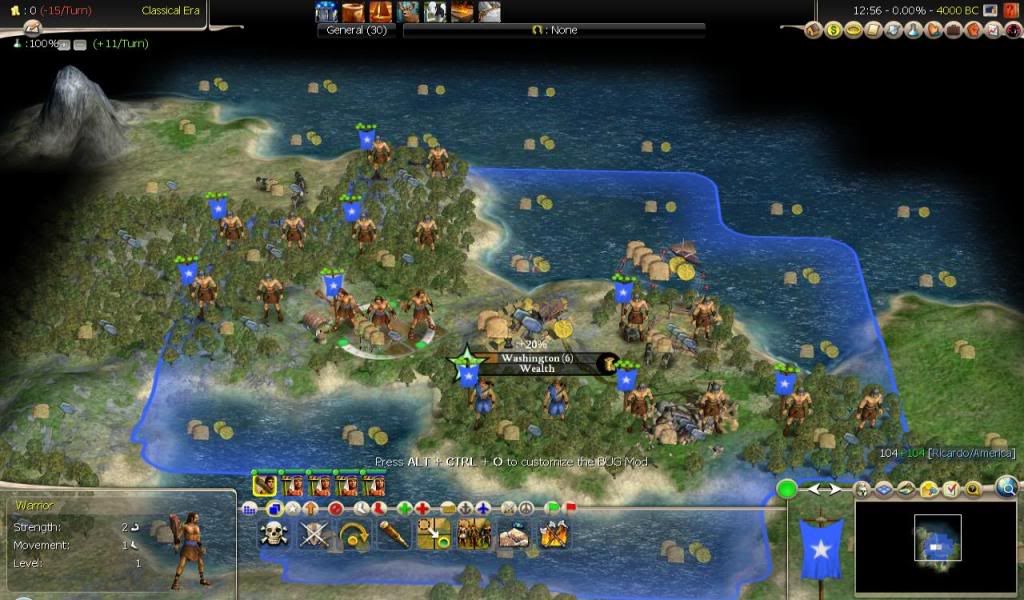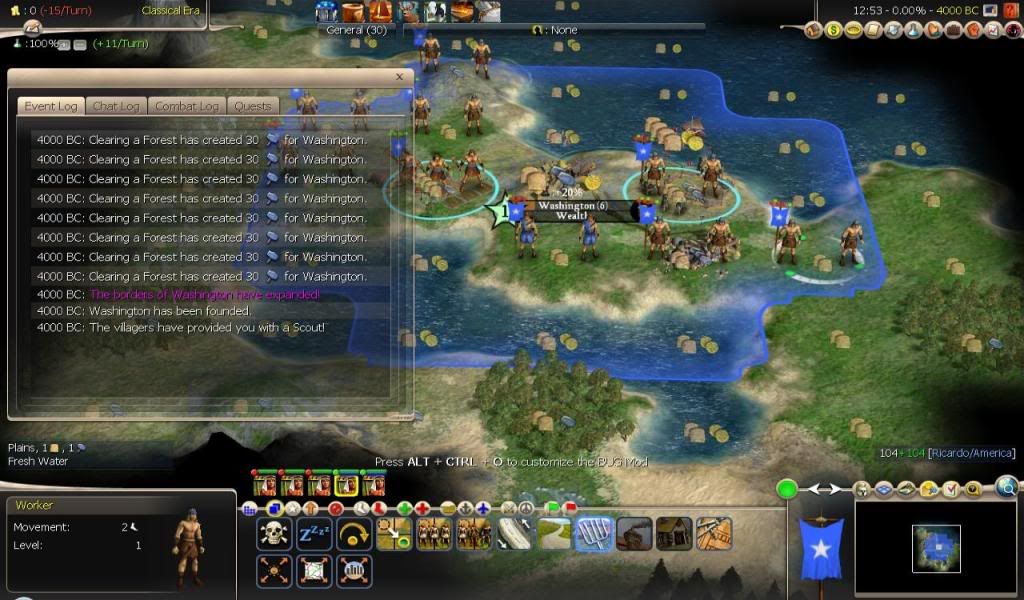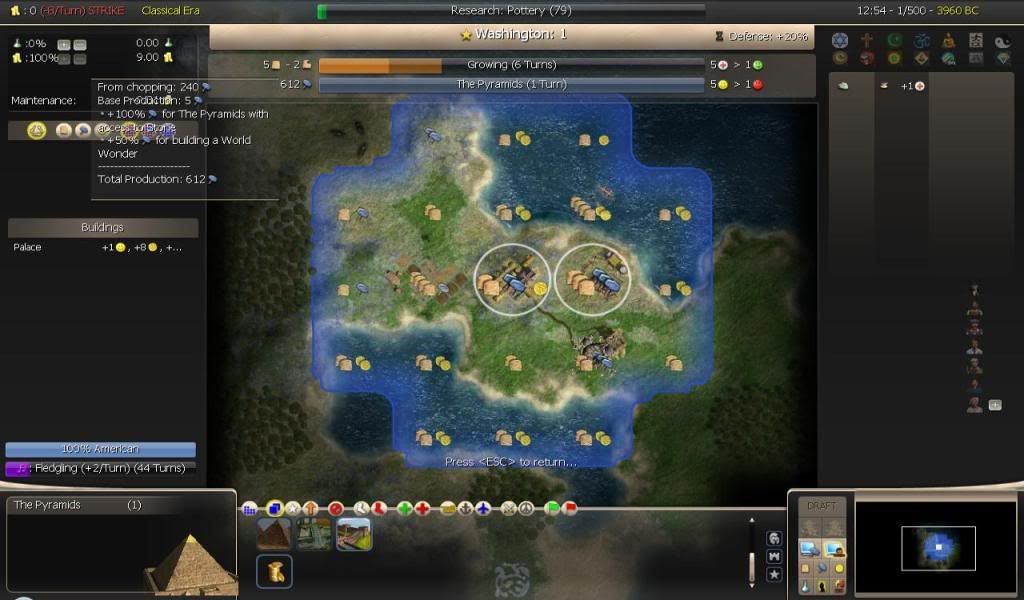void_of_form
Chieftain
67. Do not forget to switch off of state property if you want to found a corp (took me 50 turns to figure that out, lost creative engineering i had 3 great people waiting to found)
Wow. I don't know if I have become enlightened or am simply an imbecile. I wonderd why I never seemed to have the ability to found corps, since I am almost exclusively in State Property late game. Struggle City...


 ). I gave the civ BW ( for chopping ), masonry ( for access to stone ) mathematics ( for 30 hammers a chop ) and currency ( to be able to build wealth ). I also flooded the civ with workers to cut time and added some forests to enhace the dramatic effect
). I gave the civ BW ( for chopping ), masonry ( for access to stone ) mathematics ( for 30 hammers a chop ) and currency ( to be able to build wealth ). I also flooded the civ with workers to cut time and added some forests to enhace the dramatic effect 




